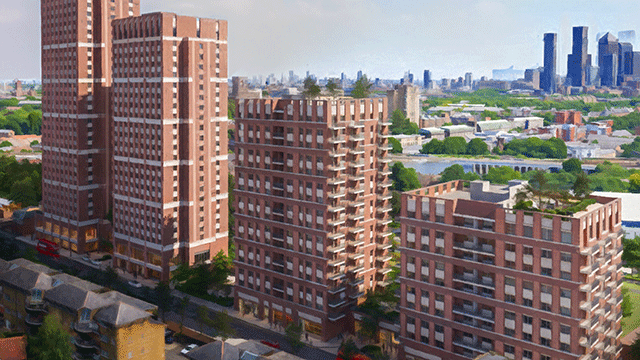The Housing Bill, which includes measures to make sellers put together home information packs for house buyers, is expected to clear the Commons by the end of today.
The packs, which may cost up to £600, will include local searches and a home condition report and are designed to try to speed the house buying process in England and Wales.
The Housing Bill introduces a licensing system for some “houses in multiple occupation” — usually large properties subdivided into flats or bedsits — and aims to crack down on ‘rogue landlords’.
It also aims to close loopholes in the right-to-buy legislation, introduced to enable council tenants to buy their own homes.
Labour MP David Kidney introduced an amendment that would force homeowners to rent out properties that stand empty for more than six months.
Councils would be able to take over such properties, bring them up to a decent standard and rent them out at an affordable rate, claiming back costs and giving the rest to the owner.
Some 750,000 homes stand empty at any one time in the country. Kidney’s plans would cover the 300,000 homes left unoccupied for more than six months.
Opening the report stage debate in the Commons, Liberal Democrat spokesman Edward Davey “broadly welcomed” the Bill’s Housing Health & Safety Regulation System, but warned it would make environmental health officers assess property hazards in a “mechanistic” and “numerical” way.
He called on the government to ensure “the quantitative approach won’t push out assessment of quality”.
Housing minister Keith Hill said: “The system does use numbers of course but the hazard score is not determined by the system.” It was rather determined by the inspector’s judgment.
Later, Tory spokesman John Hayes challenged ministers to say whether they planned to bring more homes in multiple occupation – such as student flats – within the licensing framework in future.
Hayes said a balance had to be struck to ensure the system did not act as a disincentive to those wanting to provide rented accommodation.
The Conservatives also called for the government to appoint a housing ombudsman for students to prevent “vulnerable” young people being exploited.
Liberal Democrat spokesman Matthew Green raised concerns that the definition of multiple occupancy homes was too narrow and that many would not be covered under the bill, which he said was “too lax”.
He also criticised plans to exempt university halls of residence from the regulations because as public bodies they “could be expected to behave responsibly”, particularly as some were being built under PFI schemes.
“They are run by private companies but they appear to be exempt because they are university halls of residence. Yet they are being run for profit by outside companies,” he said.
Labour’s Alan Simpson bemoaned the way in which traditional family homes in his Nottingham constituency were being “taken over” to become multiple occupancy properties for students.
He argued that “gaps” in the new legislation would be an “invitation for cowboys”.
Labour MP Harold Best said the conversion of houses for multiple occupancy had a “catastrophic effect” on “community structures” in Leeds.
The minister said there was “little hard evidence” to suggest that university accommodation was generally poorly managed.
University authorities could deal with any complaints that were raised, he said, meaning there was no case to include halls in the licensing of HMOs.
He also said that “studentification” of residential areas of university towns, did not always lead to reduction in the quality of housing.
Any council that identified a particular problem with homes falling outside the definition of HMOs — a property of at least three floors with five residents or more — would have the power to act, he added.
The private rented sector was an extremely important part of the housing market and should not be over-regulated, he added.
The Liberal Democrat bid to exclude halls of residence was defeated by 294 votes to 166, majority 128.
References: EGi Legal News 12/5/04








